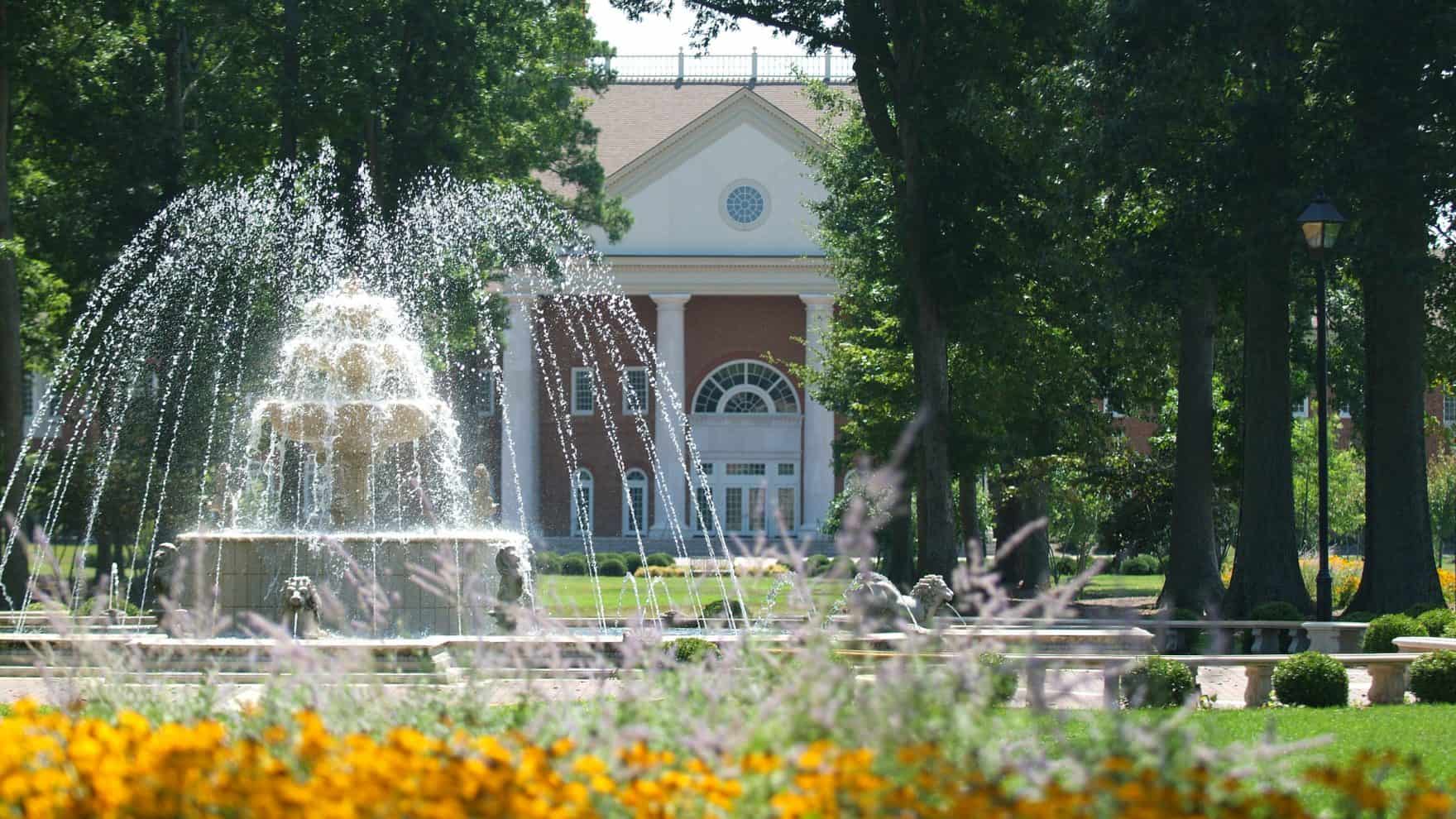
Inspiring a Prison with Her Doctorate
A friend describes Kathy Williams, ’17 (School of Business & Leadership), as marching up to the gates of hell, reaching through the bars, and telling the devil that he can’t have the people there. For 30 years, the Regent University student has been involved in prison ministry, and she now serves as a prison chaplain.
Williams says God rescued her from a rough life spent apart from Him, and now she is on her way to holding a doctorate of strategic leadership (DSL), a degree that’s gives her strategic foresight and empowers her to share her years of wisdom with others.
“I’ve always liked what I call ‘gutter-level’ ministry,” said Williams. “I like rehab centers, street preaching and evangelism. I like the people who other people have given up on. That’s because I’ve been one of those people.”
Williams quit high school because she was an IV drug addict. Attempting to raise four kids on her own, she hired a babysitter to care for them. This woman, Miss Peggy, gave her a Bible. Williams read that if she hungered for truth and righteousness, she would be fed. This encounter with God’s word put her on a path that changed her life forever and made her believe in recovering people.
As a chaplain, Williams works with a prison population of predominantly male sex offenders. She coordinates a praise and worship team, guides, coaches, mentors, provides personal counseling and assists in family crisis situations. It’s all part of running a prison chapel that facilitates more than 70 events each week. This requires her to develop special programming, engaging with the prison’s diverse population that ranges from professionals with no prior criminal background to others who have been part of the system since adolescence. All represent a wide variety of faiths, and she must minister to each of them according to their needs. Although she acknowledges pursuing her doctorate is time-consuming, she says the experience has integrated perfectly with this work.
“The thing I like about the DSL is that it is practical,” said Williams. “I’m a practical minster. I like to preach a message that you can use, something you can live with. What can I do to help you live better? That’s what’s always been important to me, and that’s what drew me to the DSL. I’ve used several of the projects here in the facility in order to be a benefit in one way or another.”
An assignment in a creative thinking class led Williams to work toward developing possible alternatives to violence. She led a workshop and involved a group in solving a problem. Relating violence to currency, she asked prisoners to come up with a way to establish a currency exchange so the prison could function in a new economy. That workshop led to a follow-up meeting and then a second workshop and other follow-up meetings. Partnering with her supervisor, there are now programs in the development phase that will hopefully be implemented into housing units.
Williams will tell you earning the degree isn’t easy. Although it relates to her job and equips her for new challenges, she must make time to study. She finds time between her job at the prison and teaching business classes as an adjunct professor to write, study and work. Sometimes she’ll do this from 3 a.m. to 7 a.m., grab a few more hours of sleep, and then head to work. She realizes the challenge is what excites her, having learned more about how she best functions after taking a class in strategic foresight.
“Dr. Richardson’s class, Strategic Foresight, became an epiphany,” said Williams. “It was like gaining a revelation of me! I realized the present bores me. I’m most energized when I’m planning something or looking to the future, developing people for what’s ahead. Once it becomes present, I tend to become bored unless there are options to continue refining and developing. The class helped me make sense of myself in ways I had not before.”
Looking to the future, Williams says she’ll complete the degree for personal satisfaction. She also teaches business law, marketing, management, business, entrepreneurship and group dynamics online in a setting where students need encouragement to become lifelong learners. She interacts with them through videos, whiteboard animation, chat and conference sessions, and bringing them together on social media. She already uses knowledge from the DSL program to teach her classes, and she plans to use her doctorate to develop curriculum and write books.

